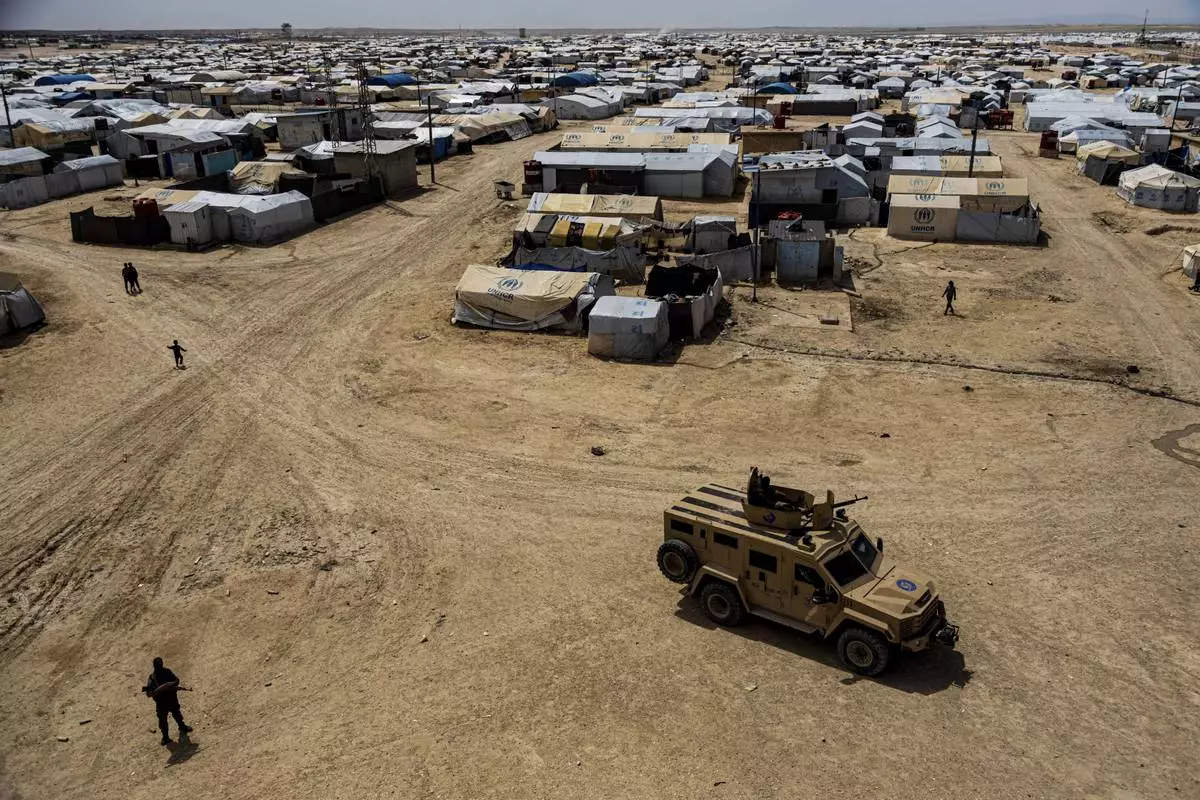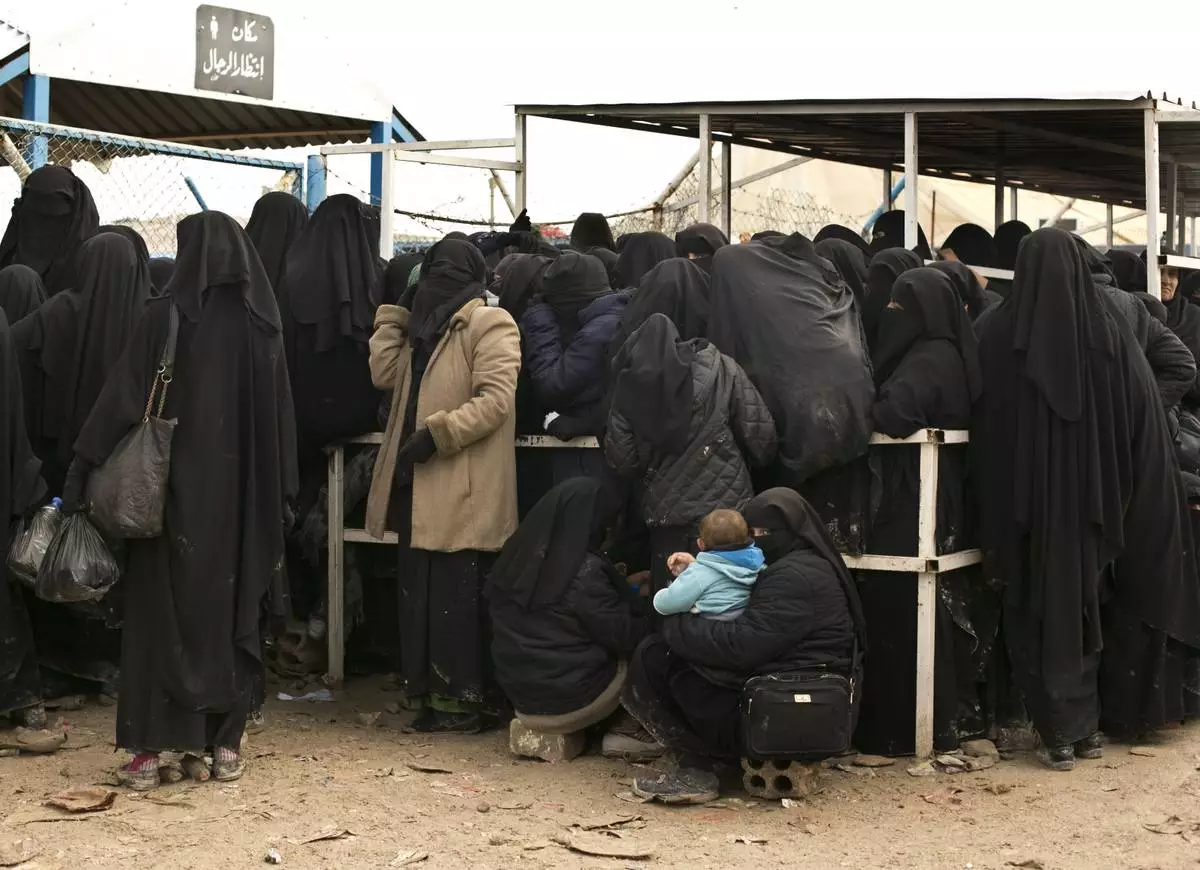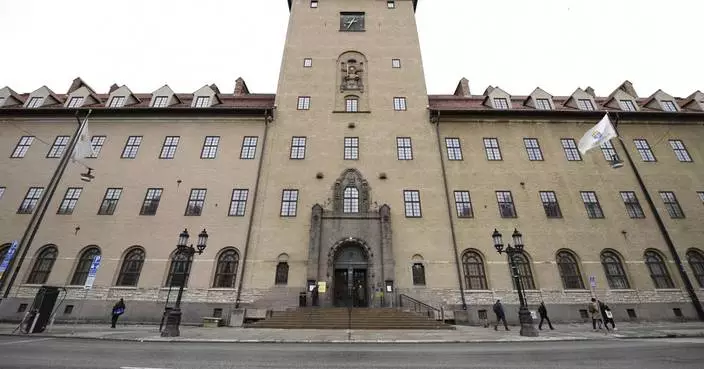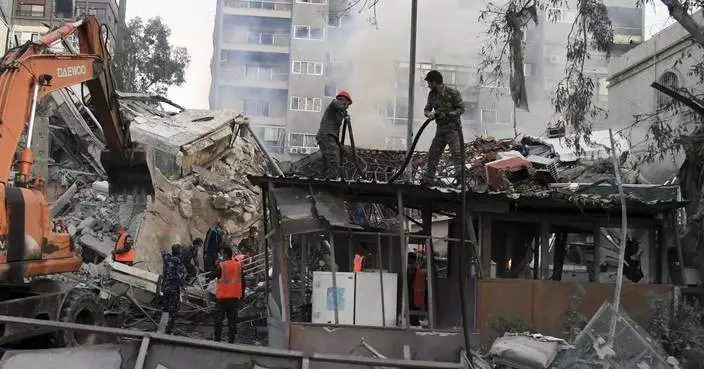Syria's military announced on Monday that its troops have regained control of territories in northwestern Syria “in record time,” vowing to continue to chase armed groups "wherever they are."
The announcement came hours after troops consolidated the government's hold over the key Aleppo province, capturing over 30 villages and hamlets in the western countryside in one day and securing the provincial capital that had for years remained within range of opposition fire.
Troops were removing barriers and roadblocks on Monday in villages and districts that were earlier controlled by Syrian rebels, state TV reported. The Britain-based Syrian Observatory for Human Rights, a war monitoring group, reported clashes in Jabal Sheik Akeel, northwest of the city of Aleppo, the provincial capital.
The armed opposition was driven out of the city's eastern quarters in late 2016, which they had controlled for years while battling government forces in charge in the western section. However, rebel groups continued to target government forces from outside the city with mortar rounds. They also controlled large parts of western rural Aleppo, territories that linked them to Idlib province, the opposition's last major stronghold.
The new advances, along with securing a key highway that ran through rebel territory, are set to facilitate movement between northern and southern Syria, including the city of Aleppo, Syria's commercial center before the war.
The Shaam Network, an opposition media platform, said the advances cut the rebels' supply line, effectively driving them out of the area.
The developments sparked late night celebrations in the city, with state media showing images of residents waving flags and dancing in the streets packed with vehicles.
Since December, Syrian troops have been on the offensive, biting bit by bit at the crowded rebel enclave, home to over 3 million people. The offensive displaced more than 800,000 people, sparking one of the largest humanitarian crisis in the nine-year war.
Gen. Ali Mayhoub, spokesman for the Syrian Armed Forces, said in a televised speech that Syrian troops were continuing their ground advances to “eradicate what is left of terrorist groups” in Syria, congratulating the soldiers for the swift advances in “record time.”
The armed opposition is now squeezed into a shrinking area of nearby Idlib province, where the government is also on the offensive, as well as the sliver of adjacent territory in western Aleppo. Also, parts of northern Aleppo region, which straddles the border with Turkey, is administered by Turkey and allied Syrian factions. Another segment of the province further west is controlled by Kurdish-led forces, allied with the United States. Those two parts have not been part of the government offensive.
Turkey, which backs the opposition, has sent thousands of troops and equipment into the opposition enclave, in an attempt to stall the Syrian government's advance. Ankara has also called for an end to the Syrian government offensive. Already home to more than 3.5 million Syrian refugees, Turkey fears a new wave may overwhelm its borders. The United Nations has also called for a cease-fire.
Support from Russia and Iran has enabled Syrian troops to regain control of much of the territories they had lost to armed groups who worked to topple Assad.
Over 400,000 people have been killed and half of Syria's population displaced since peaceful protests in 2011 turned into a civil war.
Associated Press writer Sarah El Deeb in Beirut contributed to this report.
BEIRUT (AP) — Amnesty International said Wednesday it has documented widespread abuses, including torture and deprivation of medical care, in detention facilities holding thousands of suspected Islamic State members and their relatives in northeast Syria.
The centers and camps hold about 56,000 people — the majority of them children and teens — and are run by local authorities affiliated with the U.S.-backed, Kurdish-led Syrian Democratic Forces. The SDF and its allies, including U.S.-led coalition forces, defeated the Islamic State group in Syria in 2019, ending its self-proclaimed Islamic “caliphate” that had ruled over a large swath of territory straddling Iraq and Syria.
What to do with the suspected IS fighters and their families has become an intractable issue. Many countries whose citizens traveled to Syria to join IS have been reluctant to repatriate them, as have local communities in Syria.
"People held in this system are facing large-scale violations of their rights, some of which amount to war crimes,” Nicolette Waldman, Amnesty’s senior crisis advisor, told journalists.
The United States is also responsible for the alleged violations because it played a key role in establishing and maintaining the detention system, providing hundreds of millions of dollars to the SDF and affiliated forces and regularly interrogating detainees, Waldman said.
The human rights group interviewed 126 people accused of IS affiliation currently or formerly detained, along with representatives of the local administration and aid workers.
The Amnesty report said the vast majority of detainees are being held “indefinitely, without charge or trial, in violation of international human rights law and international humanitarian law,” while those who have been tried were, in many cases, convicted on the basis of confessions extracted under torture.
The alleged abuses include “beating, stress positions, drowning, electric shocks and gender-based violence,” including a male detainee who said he and others had been sodomized with broomsticks by guards, the report said. Detainees were also deprived of food, water and medical care and subjected to extreme cold and heat in overcrowded cells, with some allegedly dying of suffocation, it said.
The report added that many of the approximately 14,500 women and 30,000 children held had been victims of human trafficking, including women who were forced to marry IS fighters and minors who were forcibly recruited by the group, and that local authorities had failed to set up a “mechanism to identify trafficking victims” and protect them.
The report also criticized the practice of forcibly separating adolescent boys — some as young as 11 or 12 — from their mothers and placing them in rehabilitation centers indefinitely.
Amnesty called on local authorities, the U.S. government and other allies to bring the detention system into compliance with international law and urged the United Nations to work with them to establish a screening process to release all who are not “reasonably suspected” of having committed a serious crime.
The Autonomous Authorities of the North and East Syria Region, the civilian administration affiliated with the SDF, wrote in response to the Amnesty findings that it had not received any official complaints regarding torture in detention facilities and “if this happened, they are individual acts.”
The administration said it would take action against employees who committed violations if evidence is provided. It denied allegations that inmates were deprived of food, water and medical care. It acknowledged overcrowding in the facilities, which it attributed to lack of financial resources to secure larger centers.
The local authorities took issue with the allegation that people were arbitrarily detained, asserting that most detainees “are members of a terrorist organization and were arrested during the battles" and that many had committed crimes against humanity and war crimes.
The U.S. State Department said in its own response that “we share many of (Amnesty’s) concerns” and it has been working to address them. It called on the international community to “aid local entities’ management of these challenges” and for countries with citizens held in detention in Syria to repatriate them.
Waldman said she believes Washington "very likely knew about these poor conditions from the beginning."
She added: “We think that it may not be the case that they are doing everything they can. They need to accept a much greater responsibility, especially since they played such a key role in establishing the situation in the first place."

FILE - Kurdish forces patrol al-Hol camp, which houses families of members of the Islamic State group in Hasakeh province, Syria, on April 19, 2023. Amnesty International said Wednesday, April 17, 2024 it has documented widespread abuses, including torture and deprivation of medical care, in detention facilities holding thousands of suspected Islamic State members and their relatives in northeast Syria. (AP Photo/Baderkhan Ahmad, File)

FILE - Women residents from former Islamic State-held areas in Syria line up for aid supplies at Al-Hol camp in Hassakeh province, Syria, March 31, 2019. Amnesty International said Wednesday, April 17, 2024 it has documented widespread abuses, including torture and deprivation of medical care, in detention facilities holding thousands of suspected Islamic State members and their relatives in northeast Syria. (AP Photo/Maya Alleruzzo, File)











